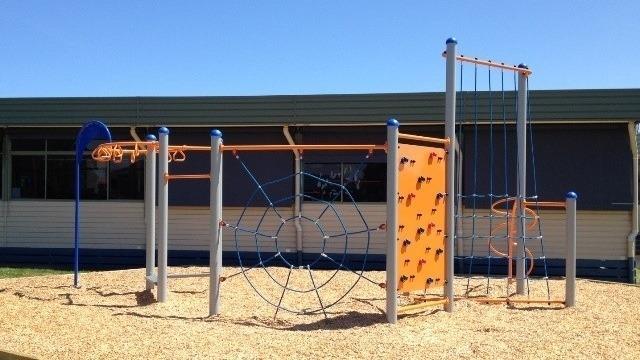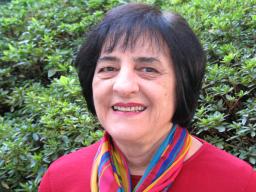Countering Religious Bullying in the Playground

The Freilich Project is pleased to invite you to a Freilich Network Webinar with Professors Zehavit Gross and Suzanne D. Rutland. The session will be chaired by Emeritus Professor Terry Lovat.
Abstract: This webinar will examine the problem of schoolyard religious bullying in Australian government schools. It is based on a qualitative research study with 58 interviews with directors, teachers, and graduates either individually or in focus groups of the six main faith groups: Christianity (18), Islam (12), Buddhism (9), Hinduism (7), Judaism (7) and Baha’i (5). We found that religious bullying in the playground affects members of four main faith communities: Muslims, Jews, Hindus and believing Christians. For Muslim children, dealing with Islamophobia can be very difficult, especially when girls have their hijabs mocked or even torn off when travelling on public transport. Similarly, Hindu girls can be bullied for having the Bindi, or wearing other Hindu symbols, which can also be desecrated on school grounds. Our findings support evidence which reveals that Christian children who follow their faith can also suffer from teasing in the playground. Hence, even though they are considered to belong to the mainstream, majority Christian society, they still suffer from prejudice and discrimination. Reports in the media of the problems of bullying in the school playground based on religious affiliation have recently multiplied.
In response to this growing problem, we shall argue that an approach which combines General Religious Education (GRE) or Worldview Education with Special Religious Education, known as ‘cooperative education’, can assist in addressing this problem. This is based on our findings that SRE can assist in countering racism and prejudice by creating a safe place for school children of different religions. With the recent mass shooting in mosques by a White Supremacist, eco-fascist in Christchurch, New Zealand, followed by a mass attack on churches in Sri Lanka and two mass shootings against Jewish communities in the United States, SRE teachers could discuss the fear and concern which affected the Muslim, Christian and Jewish students in Australia. At the same time an understanding of the different faith traditions through a GRE/Worldview program, an area currently largely neglected in the school curriculum, is also needed. These issues will be discussed in this webinar.
Professor Zehavit Gross (Ph.D.) is the Head of Graduate Programme of Management and Development in Informal Education Systems in the School of Education, Bar-Ilan University, Israel. She holds the position of UNESCO Chair in Education for Human Values, Tolerance Democracy and Peace and is the Head of the Sal Van Gelder Center for Holocaust Instruction & Research, School of Education Bar-Ilan University. She is the Immediate Past President of the Israeli Society for Comparative Education (ICES). In 28/1/16, she was invited to the UNITED NATIONS to participate and give an address in a special discussion on the future of Holocaust Education all over the world. Her main areas of specialization are peace education, interfaith and religious education and Holocaust education. Her research focuses mainly on socialization processes (religious, secular, feminine and civic) among adolescents. She is currently involved in four international research projects and is an Honorary Research Associate at the University of Sydney (NSW). Her book together with Doyle Stevick, entitled As the Witnesses Fall Silent: 21st Century Holocaust Education in Curriculum, Policy and Practice, was published (2015) by Springer and was sponsored by UNESCO. Her latest publication is Migrants and Comparative Education: Call to Re/Engagement (Brill/Sense, 2020). She is the recipient of a research grant for the years 2016–2018 from The Harry S. Truman Research Institute for the Advancement of Peace in the Hebrew University in Jerusalem and the Israel Scientific Foundation (ISF) grant on Holocaust Education in Arab and Jewish Schools, 2017–2021. She is the recipient of the 2017 Distinguished Scholar Award from the Religion & Education SIG at the American Education Research Association (AERA). She won recently (2020) the Israeli Hope in Higher Education Award from Ben Gurion University, Israel, for her unique interfaith project between Israeli Muslim, Christian and Jewish students.
Suzanne D. Rutland (OAM, Ph.D.), Professor Emerita, the Department of Hebrew, Biblical & Jewish Studies, University of Sydney, is a renowned Australian Jewish historian. She has published widely on Australian Jewish history, edits the Sydney edition of the AJHS Journal, and has written on issues relating to the Shoah, Israel, Soviet Jewry and Jewish education. Her book, The Jews in Australia, was published by Cambridge University Press in 2005. In 2008—2009. Suzanne received a government grant from the Australian Prime Ministers Centre for research on ‘Australia and the campaign for Soviet Jewry’. The product of that research was published in 2015, co-written with Australian Jewish journalist, Sam Lipski, entitled Let My People Go: The Untold Story of Australia and Soviet Jews, 1959—1989 (Melbourne: Hybrid Publishers). It was the joint winner of the 2016 Prime Minister’s Literary Award, Australian History Section. Her latest book is Lone Voice: The Wars of Isi Leibler, published by Gefen Publishing House and she is currently working on a book dealing with Jewish communal advocacy since 1945. She is a member of the Australian expert delegation for the International Holocaust Remembrance Alliance and is a member of its Education Working Group. In January 2008, she received the Medal of the Order of Australia from the Australian government for services to Higher Jewish Education and interfaith dialogue.
Location
Event series
Contact
- Dr Melissa Lovell
